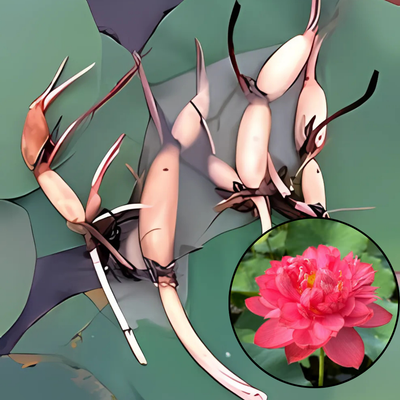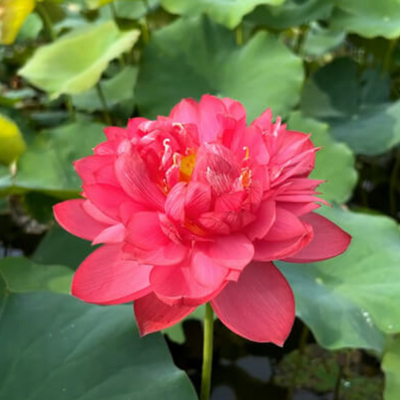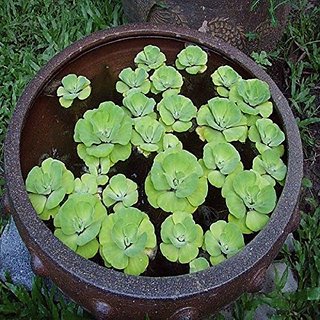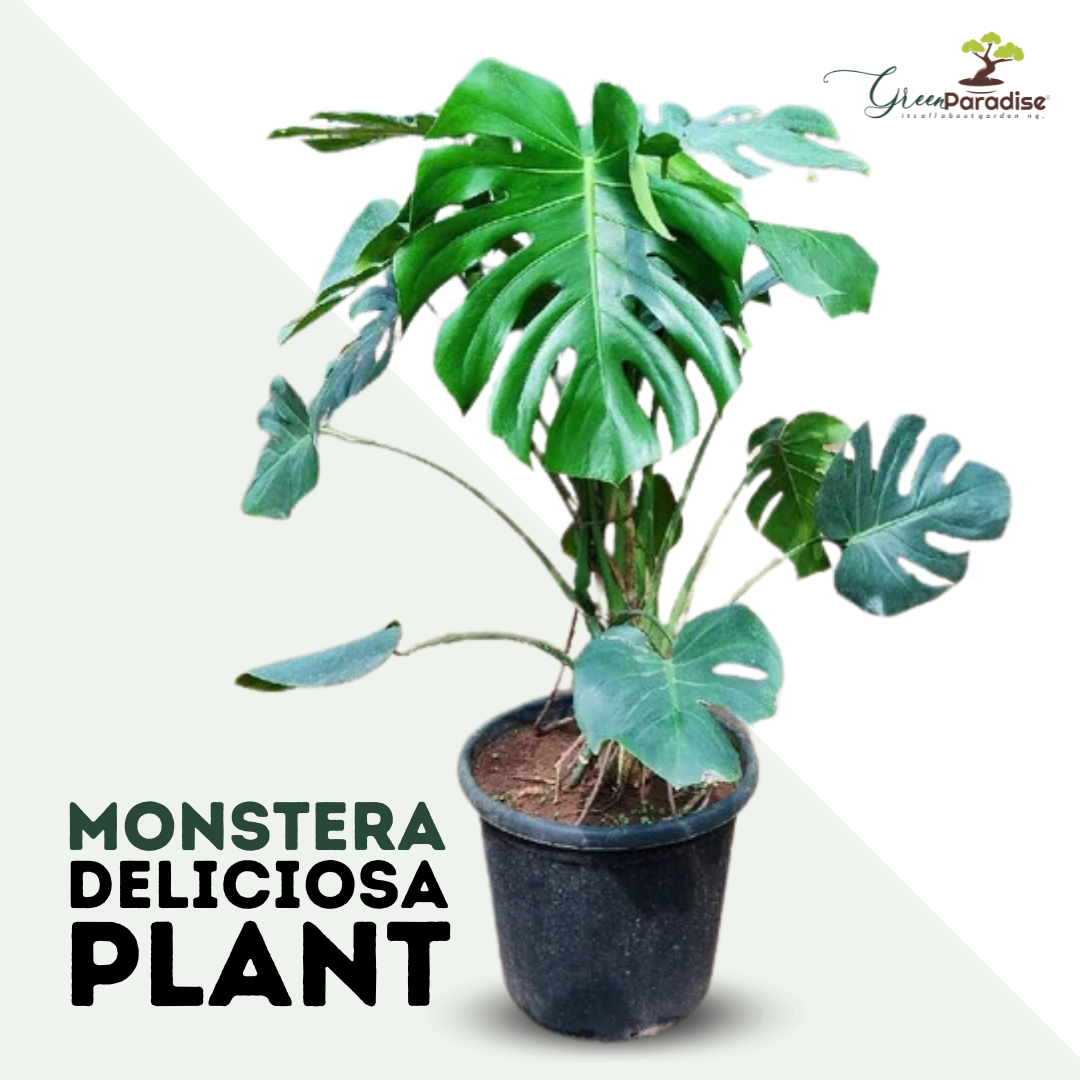
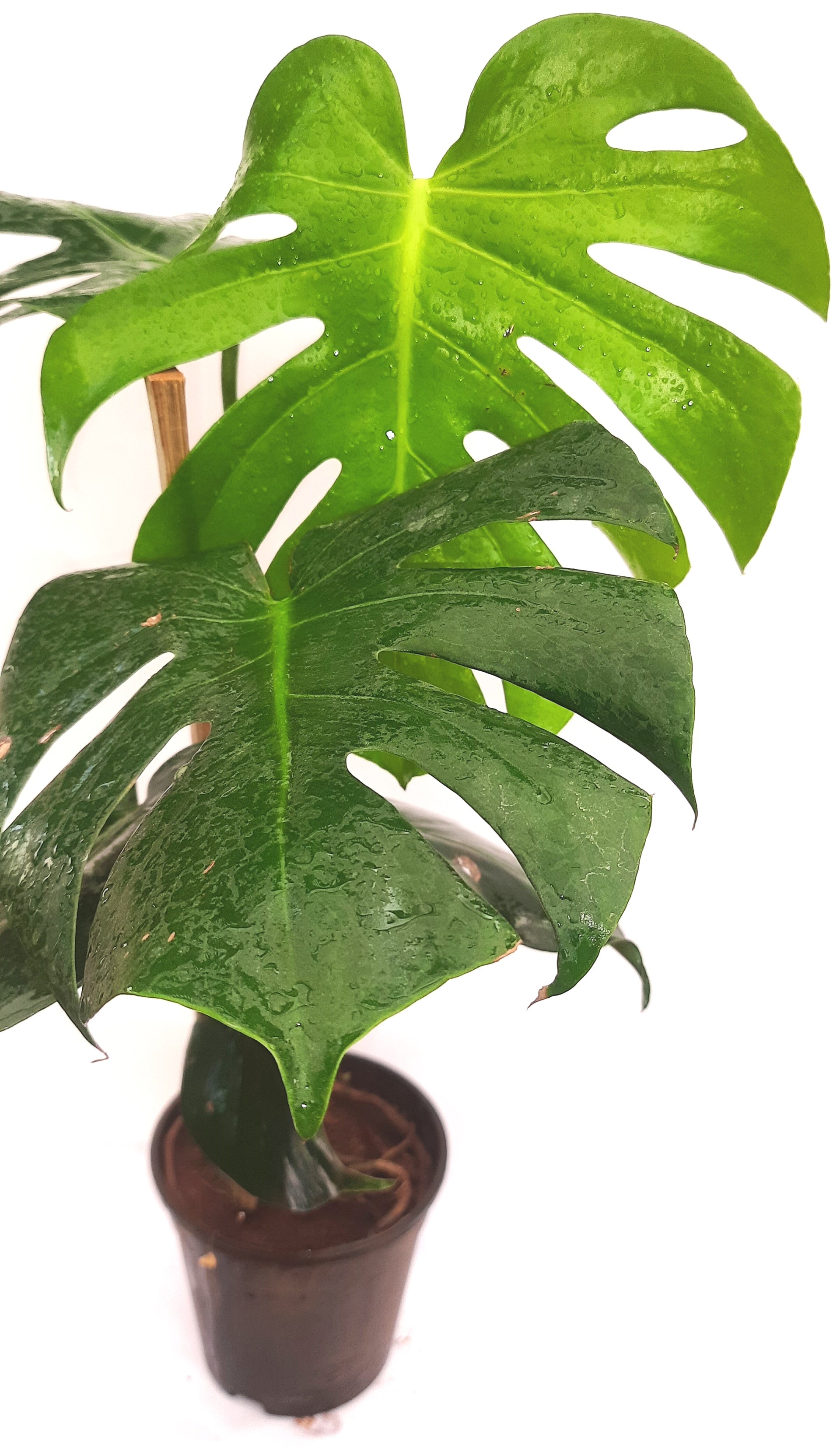
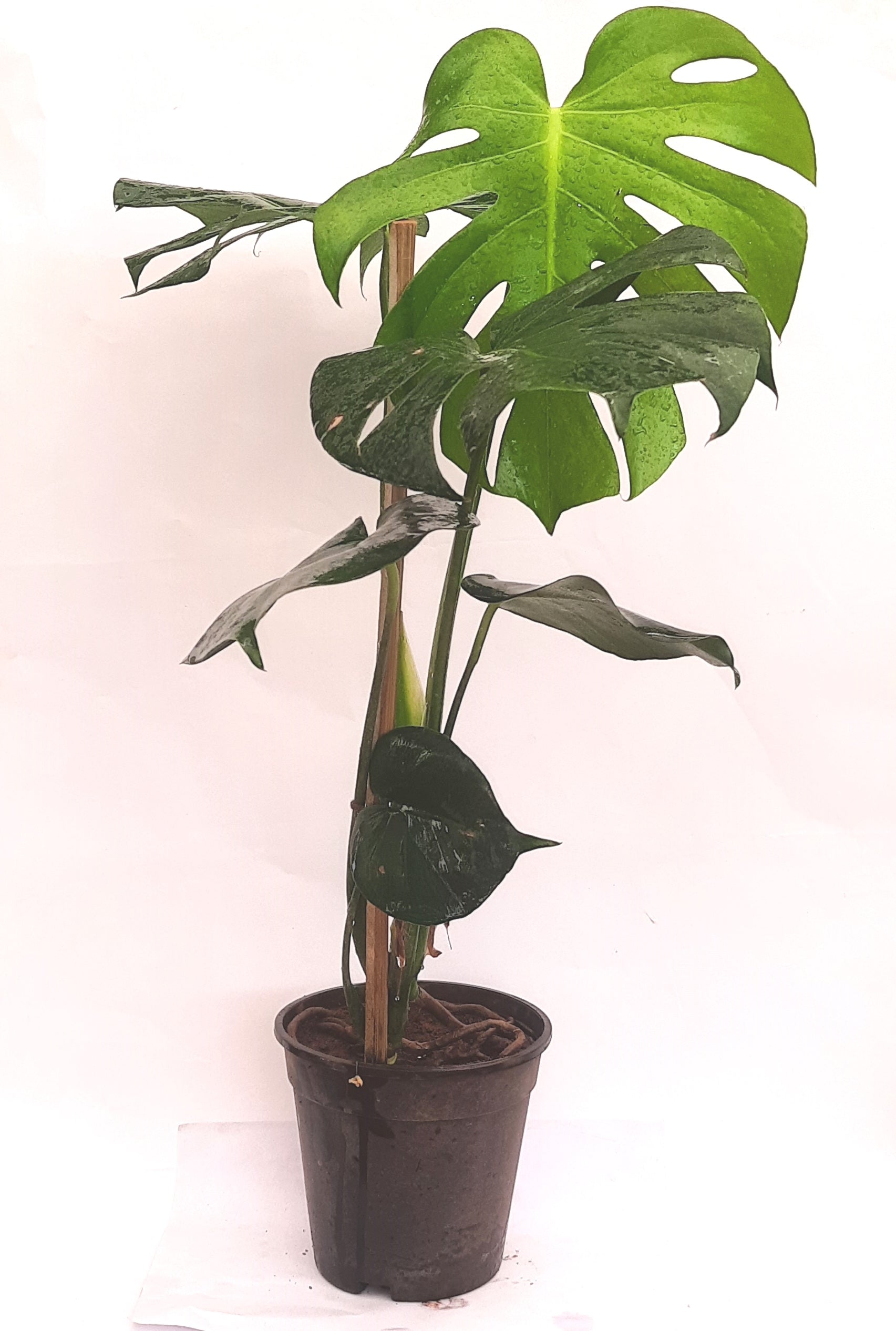
Green Paradise Monstera Deliciosa Live Indoor Monstera Plant with Nursery Pot
Guaranteed Safe Checkout
Unveiling the Marvel: Monstera Deliciosa
- Nature's Architectural Masterpiece
From Instagram feeds to interior design magazines, the Monstera Deliciosa, also known as the Swiss Cheese Plant, has been enjoying its moment in the spotlight. This stunning tropical plant has found its way into our hearts and homes, and for a good reason. With its iconic split leaves and easy-care nature, it's no wonder that the Monstera Deliciosa has become a symbol of green living. In this article, we'll explore the captivating world of Monstera Deliciosa, from its origins to care tips and the meaning behind its name.
The Origins of Monstera Deliciosa
- The Monstera Deliciosa is native to the lush rainforests of Southern Mexico and Central America. Its name, "Monstera," is derived from the Latin word "monstrum," which means "monster."
- This name is a testament to the plant's extraordinary and often gigantic size – it can climb up to 20 feet in its natural habitat.
- The "Deliciosa" part of its name comes from the delicious fruit it produces, although this is a rare occurrence for indoor plants.
Architectural Elegance: The Iconic Leaves
- What makes the Monstera Deliciosa truly stand out are its leaves. Large, leathery, and deeply lobed, they resemble swiss cheese, hence the nickname "Swiss Cheese Plant."
- These perforations and splits in the leaves are thought to have evolved to allow light and rain to pass through in its native, densely shaded rainforest habitat.
- It's these unique features that have made the Monstera Deliciosa a beloved choice for interior decorators and plant enthusiasts alike.
Caring for Your Monstera Deliciosa
One of the reasons the Monstera Deliciosa has gained such popularity is its relatively low-maintenance nature.
Here are some key care tips:
Light:
Monstera Deliciosas thrive in bright, indirect light. While they can tolerate some shade, they won't develop those iconic splits in low light conditions.
Water:
Allow the top inch or two of soil to dry out between waterings. Overwatering can cause root rot, so err on the side of underwatering.
Humidity:
These plants love humidity. Regularly misting your Monstera or placing it near a humidifier can keep it happy.
Support:
As the Monstera grows, it may need support. You can use a moss pole or trellis to help it climb, which is how it grows in the wild.
Repotting:
Repot your Monstera every couple of years to provide more space for growth.
A Symbol of Prosperity and Roots
- Beyond its aesthetic appeal and ease of care, the Monstera Deliciosa carries some symbolism.
- In feng shui, it is considered a symbol of longevity and prosperity.
- The iconic splits in the leaves are said to represent a connection between the five elements: wood, water, fire, earth, and metal.
- In this way, having a Monstera in your home can be seen as a way to invite harmony and balance into your life.
Unveiling the Secrets of Thriving Monstera Deliciosa: A
Comprehensive Growing Guide
The Monstera Deliciosa, often referred to as the "Swiss Cheese Plant" or "Split-Leaf Philodendron," has taken the world of indoor gardening by storm. Known for its striking appearance and relatively low maintenance requirements, this tropical beauty can transform any space into a lush, green paradise. If you're looking to cultivate your very own Monstera Deliciosa, you're in for a treat. In this comprehensive guide, we'll walk you through the steps to ensure your Monstera not only survives but thrives.
Understanding the Monstera Deliciosa:
- Before diving into the cultivation process, it's crucial to familiarize yourself with this remarkable plant.
- The Monstera Deliciosa, native to the rainforests of Central America, boasts large, glossy, split leaves that develop as it matures.
- It's important to know that these plants are climbers, often growing along the forest floor in the wild.
Light Requirements:
- Monstera Deliciosas are relatively adaptable when it comes to lighting conditions, but they do have their preferences.
- For optimal growth and those iconic, fenestrated leaves, place your plant in bright, indirect light.
- Avoid direct Sun, as it can scorch the leaves.
Temperature and Humidity:
- These tropical beauties love warmth. Aim to keep your Monstera in an environment where the temperature doesn't drop below 50°F (10°C).
- They also appreciate high humidity. Regular misting or placing a tray of water near your plant can help maintain the moisture levels they crave.
Watering Schedule:
- One of the most common mistakes made with Monstera Deliciosas is overwatering.
- These shops prefer to dry out slightly between waterings.
- Stick your cutlet about an inch into the soil- if it's dry, it's time to water.
- Ensure your pot has good drainage to prevent waterlogged roots, which can lead to root rot.
Soil Choice:
- A well-draining potting mix is essential for Monstera Deliciosa.
- A mixture of potting soil and perlite or orchid bark can help maintain proper aeration and prevent water from pooling around the roots.
Repotting:
- Monstera Deliciosas don't mind being a bit root-bound, so you don't need to repot them often.
- However, if you notice the roots are becoming cramped or the plant is top-heavy, it's time to repot.
- Typically, every 2-3 years is sufficient.
Pruning and Training:
- Pruning is essential for the Monstera Deliciosa. It not only helps manage the plant's size but also encourages a bushier growth pattern.
- If your Monstera starts to get too leggy, simply trim back some of the vines.
- Additionally, you can use stakes or a moss pole to encourage upward growth.
Fertilizing:
- During the growing season( spring and summer), feed your Monstera with a balanced, water-answerable toxin every 4- 6 weeks.
- Reduce feeding or stop altogether during the winter months when the plant's growth naturally slows down.
Common Pests and Problems:
- Keep an eye out for pests like spider mites and mealybugs, which can occasionally trouble Monstera Deliciosas.
- Regularly inspect the leaves for any signs of infestation and treat promptly with neem oil or insecticidal soap.
Enjoying the Fruits of Your Labor:
As your Monstera matures, it may eventually produce fruit, known as "Monstera Deliciosa" for a reason. These fruits are edible when fully ripe, with a taste reminiscent of a combination of pineapple and banana. However, be patient - it can take years for your plant to fruit, and not all indoor-grown Monstera Deliciosas will produce fruit.
In conclusion, growing a Monstera Deliciosa can be a rewarding and satisfying experience for both novice and seasoned gardeners. By providing the right conditions and care, you can enjoy the striking foliage and unique fruits of this tropical beauty. Remember, every plant is different, so be attentive to your Monstera's individual needs, and soon, you'll have a thriving, jungle-worthy specimen gracing your home.
The Monstera Deliciosa is more than just a beautiful houseplant; it's a representation of the wonders of the natural world and a touch of the exotic in your living space. With its unique leaves, manageable care requirements, and rich symbolism, it's no wonder that the Monstera Deliciosa has become a beloved addition to homes worldwide. Whether you're a seasoned plant enthusiast or a beginner looking to bring a touch of the tropics into your life, the Monstera Deliciosa is a delightful choice that's sure to catch your heart and beautify your living place.
Happy gardening!

